The Pushkar Mela, also known as the Pushkar Camel Fair, stands as one of the world’s most vibrant and culturally rich festivals. Held annually in the sacred town of Pushkar, Rajasthan, this extraordinary event transforms a quiet pilgrimage destination into a bustling carnival of colors, traditions, and spirituality. If you’re planning to witness this once-in-a-lifetime spectacle in 2025, this comprehensive guide will help you make the most of your journey.
What is Pushkar Mela?
Pushkar Mela is far more than just a camel fair—it’s a magnificent fusion of commerce, culture, and devotion. What began in the 18th century as a humble livestock trading fair for local farmers has evolved into one of the largest camel and cattle fairs in the world, attracting over 200,000 visitors annually, including tourists, pilgrims, traders, and performers from across the globe.
The fair serves multiple purposes: it’s a vital trading hub where more than 30,000 camels, horses, and cattle exchange hands; a cultural extravaganza showcasing Rajasthan’s folk music, dance, and traditions; and a sacred pilgrimage site where thousands of devotees gather to bathe in the holy Pushkar Lake during Kartik Purnima, seeking spiritual purification and blessings.
Pushkar Mela 2025: Essential Details
Dates: October 30 – November 5, 2025
Location: Pushkar Mela Ground, Pushkar, Ajmer District, Rajasthan
Duration: 7 days of festivities
Concludes on: Kartik Purnima (Full Moon Day) – November 5, 2025
Entry Fee: Free entry to the main fairgrounds (specific experiences like hot air balloon rides or guided safaris require separate tickets)
Program Details Day By Day: Visit This Link For Detailed Program List
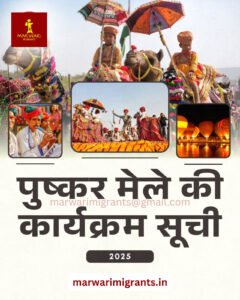
Best Days to Visit
The fair unfolds in two distinct phases. The first few days (October 30 – November 2) focus primarily on livestock trading, offering authentic glimpses of rural Rajasthan’s camel herding culture. The latter half (November 3-5) transitions into vibrant cultural festivities, competitions, and religious celebrations.
Pro Tip: Visit between November 2-4 to experience the perfect balance of trading activities, cultural performances, and spiritual ceremonies without overwhelming crowds. Arriving 1-2 days before the fair starts allows you to explore Pushkar peacefully and secure better accommodation deals.
The Sacred Significance: Mythology and Tradition
Legend of Lord Brahma and Pushkar Lake
According to Hindu mythology, Pushkar owes its creation to Lord Brahma, the creator of the universe. Legend tells that while searching for a suitable location to perform a sacred yajna (fire ritual), Brahma dropped a lotus flower from the heavens. The petals fell at three spots, creating three lakes, with Pushkar Lake being the most significant. This divine origin makes Pushkar one of the five most sacred pilgrimage sites in Hinduism, earning it the title “Tirtha Raj” or King of Pilgrimage Sites.
Kartik Purnima: The Spiritual Climax
The fair culminates on Kartik Purnima, the full moon night in the Hindu month of Kartik. According to belief, on this auspicious night, 33 million gods and goddesses descended upon Pushkar to consecrate its sacred lake. A holy dip in Pushkar Lake’s waters during this time is believed to wash away sins, grant salvation, and bring divine blessings. The lake, surrounded by 52 ghats (steps leading to water) built by various kings and royal families of Rajasthan, becomes a focal point for thousands of pilgrims performing sacred rituals.
The Only Brahma Temple in the World
Pushkar is home to one of the very few temples in the world dedicated to Lord Brahma. This rare distinction adds immense spiritual significance to the town and draws devotees year-round. The temple’s history dates back centuries, making it a cornerstone of Hindu religious architecture and faith.
Major Attractions at Pushkar Mela 2025
Camel & Livestock Trading: The Heart of the Fair
The fair’s original purpose—livestock trading—remains its most captivating aspect. Over 50,000 camels, horses, and cattle arrive with their herders, creating an unforgettable spectacle on the sandy plains. Camels are adorned with elaborate decorations: colorful fabrics, tinkling bells, intricate body paintings, and ornamental jewelry transform these desert creatures into living works of art.
Witnessing the bargaining process between traders is fascinating. Camel herders, dressed in vibrant traditional attire with colorful turbans, proudly display their prized animals. The Camel Decoration Contest showcases the deep bond between herders and their camels, with owners demonstrating exceptional grooming skills and artistic flair.
The fair also features trading of Marwadi and Kathiawari horse breeds, goats, and other livestock, maintaining its authentic rural character amidst the growing tourism.
Cultural Performances & Entertainment
Rajasthan’s rich cultural heritage comes alive at Pushkar Mela through mesmerizing folk performances:
-
Kalbelia and Ghoomar Dances: Female dancers in mirrored skirts twirl hypnotically to traditional drum beats
-
Folk Music: Traditional Rajasthani musicians play ancient instruments, filling the air with haunting melodies
-
Puppet Shows: Kathputli (puppet) performances narrate traditional stories and folklore
-
Acrobats and Street Performers: Display incredible feats of skill and balance
-
Storytelling Sessions: Local performers share ancient tales and legends
Quirky Competitions & Events
One of the fair’s most entertaining aspects is its unique competitions that blend tradition with humor:
-
Longest Moustache Competition: Men showcase spectacularly groomed moustaches, some extending several feet
-
Turban Tying Contest: Participants demonstrate speed and artistry in tying traditional Rajasthani turbans
-
Tilak Contest: Competition for the most elaborate forehead markings
-
Camel Races: Thrilling races where camels gallop across the sand at surprising speeds
-
Camel Dance: Camels perform choreographed movements to music
-
Matka Race (Pot Race): Women-only competition involving balancing pots while racing
-
Bridal Dress-Up Competition: Showcasing traditional wedding attire and customs
-
Traditional Sports: Kabaddi, Gilli-Danda, Langri Taang, and “Lagaan” style cricket matches
-
Tug-of-War: Inter-village competitions demonstrating strength and teamwork
Adventure Activities
Modern additions to the fair cater to adventure seekers and thrill enthusiasts:
-
Hot Air Balloon Rides: Experience breathtaking sunrise or sunset aerial views of the fair and surrounding desert landscape (₹9,000-15,000 per person)
-
Camel Safaris: Explore the Thar Desert on camelback, ranging from short rides to overnight camping experiences (₹500-2,500 depending on duration)
-
Jeep Safaris: Venture into the desert in 4×4 vehicles
-
Desert Camping: Overnight stays in traditional camps with cultural programs, folk music, and stargazing
-
Nature Walks: Guided treks through the desert landscape
Spiritual Experiences
The fair’s religious dimension offers profound spiritual moments:
-
Maha Aarti at Pushkar Lake: Evening prayer ceremony at Sarovar Ghat featuring thousands of oil lamps (diyas) floating on the water, creating a mesmerizing sight
-
Holy Dip in Pushkar Lake: Taking a sacred bath in the lake’s 52 ghats, especially on Kartik Purnima, for spiritual cleansing
-
Brahma Temple Visit: Offering prayers at the world’s most important Brahma temple
-
Savitri Temple Pilgrimage: Climb the mountain (or take a cable car for ₹150-200) to this hilltop temple offering panoramic views
-
Ghat Walking Tour: Explore all 52 ghats, each with unique significance, donated by different royal families
-
Deepdaan Ceremony: Lighting and releasing oil lamps on the lake as offerings
-
Religious Rituals and Yajnas: Witness or participate in various Hindu ceremonies and fire rituals
Day-by-Day Schedule & Program Highlights
October 30 (Opening Day)
-
Flag hoisting ceremony marking the fair’s commencement
-
Livestock traders begin arriving with their animals
-
Initial cultural performances
-
Evening Maha Aarti at Sarovar Ghat
October 31 – November 2 (Peak Trading Days)
-
Camel and cattle trading intensifies
-
Beautifully decorated animals on display
-
Camel Beauty Contests
-
Folk music and dance performances
-
Shilpgram Handicrafts Bazaar opens (11 AM – 8 PM)
-
Adventure activities at designated zones
-
Hot air balloon flights (morning and evening sessions)
November 3 (Cultural Crescendo)
-
“Lagaan” style cricket match at Mela Ground
-
Inter-Panchayat Samiti Rural Sports
-
Voice of Pushkar singing competition
-
Sufi Night with live music performances
-
Classical dance at Old Rang Ji Temple
-
Heightened cultural activities
November 4 (Major Competitions Day)
-
Harmony Marathon from Ajmer’s Dargah Khwaja Saheb to Shri Brahma Temple, Pushkar (5:30 AM)
-
Moustache Competition (11:00 AM)
-
Turban Tying & Tilak Contest (11:30 AM)
-
Matka Race – Women Only (10:30 AM)
-
Voice of Pushkar Finale
-
Camel races gathering momentum
-
Evening Maha Aarti
November 5 (Kartik Purnima – Grand Finale)
-
Biggest crowds converge for the holy dip at dawn
-
Final rounds of competitions
-
Prize distribution ceremonies
-
Maximum spiritual activities
-
Closing celebrations
-
Most auspicious day for bathing in Pushkar Lake
Photography Tip: Arrive at the Mela Ground and lake ghats during golden hours (sunrise and post-sunset) for the best lighting. The early morning hours (5:30-8:00 AM) offer spectacular photo opportunities with fewer crowds.
Shopping at Pushkar Mela: A Shopper’s Paradise
What to Buy
Pushkar Mela transforms into a vibrant marketplace offering authentic Rajasthani treasures:
Handicrafts & Artifacts
-
Wooden carvings and sculptures
-
Stone work and marble items
-
Pottery and ceramic pieces
-
Lac bangles and traditional jewelry
Textiles & Clothing
-
Block-printed fabrics (traditional Bagru and Sanganer prints)
-
Bohemian and ethnic clothing
-
Embroidered textiles
-
Traditional Rajasthani attire (ghagra-choli, bandhani sarees)
-
Colorful scarves and dupattas
-
Handwoven shawls
Jewelry
-
Silver jewelry with intricate tribal designs
-
Traditional Rajasthani kundan and meenakari work
-
Oxidized silver ornaments
-
Semi-precious stone jewelry
Leather Goods
-
Handcrafted bags and purses
-
Mojari (traditional Rajasthani shoes)
-
Belts and accessories
-
Camel leather products
Rose Products
-
Rose water (Pushkar is famous for its roses)
-
Gulkand (rose petal preserve)
-
Rose essential oils
-
Rose-based cosmetics
Home Décor
-
Traditional lanterns and lamps
-
Miniature paintings
-
Wall hangings and tapestries
-
Rajasthani handicraft items
-
Camel-themed souvenirs
Best Shopping Markets
Sadar Bazaar: The main market offering everything from clothing to handicrafts
Sarafa Bazaar: Specializes in silver jewelry and precious ornaments
Kedalganj Bazaar: Best for authentic handicrafts and traditional artifacts
Baza Bazaar: Great for leather goods and textiles
Rangili Bazaar: Textile heaven with colorful fabrics and embroidered items
Fair Ground Stalls: Temporary shops during the fair offering unique fair-specific items
Shopping Tips
-
Bargain Boldly: Initial prices are often inflated; expect to negotiate 30-50% off
-
Carry Cash: Many vendors don’t accept digital payments, especially at the fair ground
-
Shop Early: Best selection is available early in the fair; prices may increase as the fair progresses
-
Quality Check: Inspect items carefully for craftsmanship and authenticity
-
Compare Prices: Walk around and compare before making purchases
-
Ask for Demonstrations: Many artisans will show you their craft techniques
-
Pack Smart: Bring extra bags for your purchases or arrange shipping for large items
Also check: What Is Famous in Jodhpur for Shopping?
Food & Culinary Delights at Pushkar Mela
Pushkar offers a unique culinary experience—the town is completely vegetarian, with no meat, eggs, or alcohol sold within city limits due to its sacred status.
Must-Try Dishes
Dal Baati Churma: The quintessential Rajasthani dish featuring baked wheat balls (baati) served with spiced lentils (dal) and sweetened crushed wheat (churma). This signature dish is a must-try at the fair.
Kadhi Kachori: Crispy fried pastries stuffed with spiced lentils, served with tangy yogurt curry
Malpua: Sweet pancakes made from flour, milk, and sugar, fried and dipped in sugar syrup—a favorite dessert at the fair
Gatte Ki Sabzi: Gram flour dumplings cooked in spiced yogurt gravy
Puri Aloo: Fluffy deep-fried bread served with spicy potato curry
Kulhad Chai: Traditional tea served in earthen cups, offering authentic flavor
Rose Lassi: Pushkar’s signature yogurt drink infused with rose syrup
Street Food: Samosas, pakoras, chaat, jalebi, and various Indian sweets at numerous stalls
Where to Eat
Local Food Stalls: The fair ground buzzes with food vendors offering fresh, hot meals throughout the day (₹150-300 per meal)
Rooftop Cafés: Pushkar town features numerous cafés with lake views, serving both traditional and international vegetarian cuisine (₹400-800 per meal)
Mid-Range Restaurants: Sit-down eateries offering thali meals and à la carte options (₹500-1,000 per meal)
Fine Dining: Some heritage hotels and resorts offer gourmet vegetarian experiences (₹2,000+ per meal)
Tip: Stay hydrated in the desert climate. Drink only bottled water and be cautious with street food—stick to freshly prepared, hot dishes. Carry hand sanitizer as hygiene facilities may be limited at the fair ground.
You can also check: Top 15 Marwadi Food Dishes You Must Try
How to Reach Pushkar
By Air
Nearest Airport: Jaipur International Airport (146-150 km, approximately 3 hours)
Airport Transfers:
-
Pre-booked taxis: ₹2,500-3,500
-
Shared cabs: ₹800-1,200 per person
-
App-based services (Ola/Uber): Available but surge pricing during fair
By Train
Nearest Railway Station: Ajmer Junction (14-17 km, approximately 30-45 minutes)
Ajmer is well-connected to major Indian cities including Delhi, Mumbai, Jaipur, Ahmedabad, and Bangalore.
From Ajmer to Pushkar:
-
Private taxi: ₹500-800
-
Shared taxi: ₹50-100 per person
-
Auto-rickshaw: ₹300-500
-
Local buses: ₹20-30 per person
By Road
From Jaipur: 145-150 km (approximately 3 hours)
-
Private taxi: ₹2,000-3,000
-
Rajasthan State Road Transport Corporation (RSRTC) buses: ₹150-300
-
Travel time: 3-3.5 hours
From Delhi: 414 km (approximately 7-8 hours)
-
Private taxi: ₹5,000-7,000
-
Volvo/AC buses: ₹800-1,500
-
Travel time: 7-9 hours (overnight buses available)
From Udaipur: 280 km (approximately 5 hours)
Pro Tip: Book transportation at least 2-3 weeks in advance during the fair period, as prices increase significantly and availability decreases. Pre-arrange airport pickup through your hotel for convenience and safety.
Accommodation Options at Pushkar Mela
Types of Stay
Luxury Desert Camps & Resorts (₹7,000-15,000+ per night)
-
Swiss-style tents with attached bathrooms
-
Resort-style amenities
-
Cultural programs included
-
Catered meals
-
Private transport arrangements
-
Best for: Couples, honeymoon travelers, luxury seekers
Mid-Range Hotels & Heritage Properties (₹2,500-6,000 per night)
-
Boutique hotels around Pushkar Lake
-
Heritage havelis with traditional architecture
-
Modern amenities with cultural touches
-
Rooftop restaurants with lake views
-
Best for: Families, couples seeking comfort
Budget Accommodations (₹800-2,500 per night)
-
Guesthouses and hostels
-
Dharamshalas (pilgrimage lodges)
-
Basic hotels in town
-
Shared facilities options available
-
Best for: Backpackers, solo travelers, budget-conscious visitors
Camping Options (₹1,500-5,000 per night)
-
Tented accommodations near fair ground
-
Varying levels of comfort
-
Usually includes meals and cultural evening programs
-
Closer proximity to fair activities
-
Best for: Adventure seekers, those wanting authentic fair experience
Also check: Where to Stay in Jodhpur
Booking Tips
Book Early: Start looking 6 months in advance (April-May 2025) for best availability and pricing. Book by July-September for potential 10% early-bird discounts.
Price Surge: During the fair, accommodation prices increase 200-500% compared to regular season. What costs ₹800 normally may jump to ₹3,000-4,000.
Location Matters:
-
Near Pushkar Lake: Spiritual atmosphere, close to temples and ghats
-
Near Mela Ground: Quick access to fair activities, but can be dusty and noisy
-
In town: Balanced access to both attractions, better restaurant options
Check Inclusions: Confirm what’s included (meals, transport to fair, cultural programs) as packages vary widely.
Cancellation Policy: Fair dates can occasionally shift by a day or two due to lunar calendar adjustments; check flexible cancellation terms.
Recommended Properties
-
Royal Desert Camp
-
Pushkar Adventure Desert Camp
-
Ananda Resort Pushkar
-
Jagat Singh Palace (heritage hotel with lake views)
-
Various camps and resorts bookable through travel agencies
Best Time to Visit & Weather
Ideal Season
Pushkar is best visited between October and March when the weather is pleasant and comfortable for sightseeing. However, the Pushkar Mela period (late October/early November) offers a unique experience despite being peak tourist season.
Weather During Fair (October 30 – November 5, 2025)
Daytime Temperature: 23-28°C (73-82°F)
Nighttime Temperature: 12-18°C (54-64°F)
Humidity: Low
Rain Probability: Minimal
Sun: Strong during midday
What to Wear & Pack
Clothing:
-
Light, breathable cotton clothes for daytime
-
Modest attire (covering shoulders and knees) respecting the sacred town
-
Long tunic/kurti with leggings or loose pants ideal for women
-
Comfortable loose shirts and cotton pants for men
-
Light jacket or shawl for cool mornings and evenings
-
Comfortable walking shoes or sandals (you’ll walk 5-10 km daily)
-
Extra pair of sandals that can be easily removed (for temple visits)
Accessories:
-
Wide-brimmed hat or cap for sun protection
-
Sunglasses
-
Scarf or dupatta (multi-purpose for sun, dust, and temple coverage)
-
Dust mask or neck gaiter (desert conditions create dusty environment)
Essentials:
-
High SPF sunscreen (reapply frequently)
-
Water bottle (stay hydrated constantly)
-
Hand sanitizer and wet wipes (essential for hygiene)
-
Basic medications (anti-diarrheal, pain relief, antihistamines)
-
Power bank for electronics
-
Extra memory cards for cameras
-
Flashlight or headlamp for evening navigation
-
Small backpack or crossbody bag
-
Cash in small denominations (₹10, ₹20, ₹50 notes useful)
-
Copies of identification documents
Photography Tips for Pushkar Mela
Golden Hour Magic
Sunrise (5:30-7:30 AM): The absolute best time for photography. The soft golden light illuminates decorated camels, creates long dramatic shadows, and captures the fair coming to life. Fewer crowds mean better access and more authentic moments.
Post-Sunset (6:00-7:30 PM): The Maha Aarti ceremony with thousands of floating lamps creates magical photo opportunities. Blue hour lighting adds mystical quality to images.
What to Photograph
Decorated Camels: Focus on intricate ornaments, colorful textiles, body paintings, and the proud expressions of herders
Portraits: Capture the character-filled faces of traders, pilgrims, and performers. Focus on eyes and emotions. The longest moustache competitors and turban-tying participants make excellent subjects.
Cultural Performances: Kalbelia dancers in motion, folk musicians with traditional instruments, puppet shows
Aarti Ceremonies: Priests performing rituals, floating diyas on water, crowds of devotees
Market Scenes: Colorful bazaars, handicraft displays, negotiations between traders
Landscape Shots: Vast fairgrounds filled with animals and people, aerial views from hot air balloons, ghats surrounding the lake
Details: Close-ups of jewelry, textiles, camel decorations, traditional crafts
Technical Tips
Gear Recommendations:
-
Wide-angle lens (16-35mm) for landscape and crowd scenes
-
Standard zoom (24-70mm) for versatility
-
Telephoto lens (70-200mm) for candid portraits and distant subjects
-
Prime lens (50mm f/1.8) for low-light temple and evening shots
Camera Settings:
-
Shoot in RAW format for maximum editing flexibility
-
Use continuous autofocus for moving subjects (camel races, dancers)
-
Higher shutter speeds (1/500+) to freeze action
-
Adjust ISO as needed; mornings and evenings may require ISO 800-1600
Dust Protection:
-
Desert conditions mean constant dust exposure
-
Use UV filters to protect front lens elements
-
Keep camera in bag when not actively shooting
-
Bring lens cleaning kit
-
Avoid changing lenses in open air when possible
Practical Photography Etiquette
Respect & Permission:
-
Always ask permission before photographing people, especially women
-
Keep Rs. 10-20 notes handy; some people may expect small payment for portraits
-
Be respectful during religious ceremonies; some rituals shouldn’t be photographed
-
Never photograph people bathing in the lake
Physical Stamina:
-
Expect to walk 10+ kilometers daily for best shots
-
Start early morning to avoid crowds and harsh light
-
Take breaks to rest and review images
-
Stay hydrated while carrying gear
Safety:
-
Watch your equipment in crowded areas
-
Use camera straps and keep gear secure
-
Don’t display expensive equipment unnecessarily
-
Consider a local guide/fixer who can help with access and translations
Practical Tips for Visitors
Cultural Etiquette & Respect
Dress Modestly: Pushkar is a sacred pilgrimage town. Cover shoulders and knees at all times, especially when visiting temples and ghats. Shorts and tank tops are inappropriate.
Temple Protocols:
-
Remove shoes before entering temples and walking around Pushkar Lake
-
Don’t carry leather items into temples
-
Avoid smoking anywhere in the town
-
Photography may be restricted in some temple areas
Lake Rules:
-
Pilgrims bathe for religious purification—do not enter the water if you’re not Hindu
-
Do not photograph people bathing
-
Remove shoes when walking along ghats
-
Don’t throw anything into the lake
Local Interactions:
-
Ask permission before photographing people
-
Be respectful of religious ceremonies and rituals
-
Avoid public displays of affection (conservative town)
-
Don’t point feet toward people or religious objects
Safety & Health
Stay Hydrated: Desert climate and walking demand constant water intake. Carry bottled water always.
Sun Protection: Apply sunscreen every 2-3 hours. The November sun is deceptively strong.
Food Safety:
-
Drink only bottled water (verify seal is intact)
-
Eat at busy restaurants where food turnover is high
-
Stick to freshly cooked hot food
-
Avoid cut fruits and raw salads
-
Hand sanitizer before eating
General Safety:
-
Watch belongings in crowded areas
-
Use hotel safe for valuables and extra cash
-
Avoid carrying large sums of money
-
Women should avoid walking alone late at night in less busy areas
-
Keep copies of important documents separate from originals
For Solo Female Travelers:
-
Pushkar is generally considered safe for solo female travelers
-
Dress conservatively to avoid unwanted attention
-
Stay in well-reviewed accommodations near lake or main market
-
Pre-arrange airport/station pickup
-
Share your itinerary with someone
-
Use Ola/Uber for safe transportation
-
Trust your instincts—if something feels off, leave
-
Join group tours for fair visits if preferred
-
Tourist Helpline Number: 1800 111 363
Money Matters
Cash is King: Most vendors, especially at the fair ground, don’t accept cards or digital payments. ATMs in Pushkar may run out of cash during the fair, so:
-
Withdraw sufficient cash before arriving or early in your stay
-
Carry mix of denominations, especially ₹10, ₹20, ₹50 notes for small purchases
-
Keep cash in multiple secure locations
-
Some hotels and established restaurants accept cards
Bargaining:
-
Expected and encouraged in markets and with vendors
-
Start at 40-50% of quoted price
-
Stay friendly and patient during negotiations
-
Walk away if price isn’t acceptable—vendors often call you back
-
Fixed price shops exist but are less common
Communication
Local Language: Hindi and Rajasthani are spoken; English is understood in tourist areas
SIM Card: Purchase local SIM (Jio, Airtel, Vodafone) for connectivity and maps
Internet: Most hotels offer WiFi; mobile data is essential for navigation
Budget Planning for Pushkar Mela 2025
Daily Budget Estimates
Budget Traveler (₹1,200-2,500/day per person)
-
Accommodation: ₹800-1,500
-
Food: ₹300-500 (street food and local dhabas)
-
Local transport: ₹100-200
-
Activities: ₹200-300 (camel ride, fair entry free)
-
Shopping: As per preference
-
Total for 3 days: ₹3,500-7,500
Mid-Range Traveler (₹3,500-7,000/day per person)
-
Accommodation: ₹2,500-4,000
-
Food: ₹800-1,200 (rooftop cafés, mid-range restaurants)
-
Transport: ₹500-800 (hired scooter or taxis)
-
Activities: ₹1,000-2,000 (camel safari, ropeway, cultural shows)
-
Shopping: ₹1,000-2,000
-
Total for 3 days: ₹10,500-21,000
Luxury Traveler (₹10,000-20,000+/day per person)
-
Accommodation: ₹7,000-15,000+
-
Food: ₹2,000-4,000 (fine dining, private experiences)
-
Transport: ₹2,000-4,000 (private chauffeur)
-
Activities: ₹3,000-8,000 (hot air balloon ₹9,000-15,000, private safaris, spa)
-
Shopping: ₹3,000-5,000+
-
Total for 3 days: ₹30,000-60,000+
Specific Activity Costs
-
Pushkar Mela Entry: Free
-
Camel Short Ride (1 hour): ₹500-1,000
-
Camel Safari (half day): ₹1,500-2,500
-
Overnight Desert Camping: ₹1,500-5,000 (with meals and entertainment)
-
Hot Air Balloon: ₹9,000-15,000 per person
-
Savitri Temple Ropeway: ₹150-200 round trip
-
Private Guide: ₹1,000-3,000 per day
-
Bicycle Rental: ₹100-200 per day
-
Scooter Rental: ₹300-500 per day
Sample Itineraries
3-Day Pushkar Mela Itinerary
Day 1: Arrival & Spiritual Introduction
-
Morning: Arrive in Pushkar, check into accommodation
-
Late Morning: Visit Brahma Temple
-
Afternoon: Walk around Pushkar Lake and explore ghats
-
Evening: Attend Maha Aarti at Sarovar Ghat
-
Night: Explore local market and dinner at rooftop café
Day 2: Full Day at Pushkar Mela
-
Early Morning: Hot air balloon ride at sunrise (pre-booked)
-
Morning: Explore Pushkar Mela Ground—witness camel trading, decorated animals
-
Midday: Watch competitions (moustache, turban tying, camel beauty contest)
-
Afternoon: Enjoy cultural performances and folk dances
-
Late Afternoon: Visit traders’ area to see camels up close
-
Evening: Camel safari into desert for sunset
-
Night: Cultural evening at desert camp or return to town
Day 3: Shopping & Departure
-
Morning: Take holy dip at Pushkar Lake (if appropriate) or observe ceremonies
-
Late Morning: Shopping at Sadar Bazaar and Sarafa Bazaar
-
Afternoon: Climb (or take ropeway) to Savitri Temple for panoramic views
-
Evening: Final Maha Aarti and farewell to Pushkar
-
Night: Depart for next destination
5-Day Comprehensive Pushkar Experience
Day 1: Arrival & Town Exploration
-
Arrive, settle in accommodation
-
Explore Pushkar town, temples, and ghats
-
Attend evening aarti
-
Enjoy rooftop dinner with lake view
Day 2: Spiritual Deep Dive
-
Early morning 52 ghats walking tour
-
Visit Brahma Temple and other significant temples
-
Learn about Hindu rituals and traditions
-
Participate in or observe religious ceremonies
-
Savitri Temple visit
-
Evening yoga or meditation session
Day 3: Full Fair Immersion
-
Sunrise photography session at Mela Ground
-
Morning at livestock trading area
-
Watch camel decorations and competitions
-
Enjoy folk performances
-
Afternoon exploring fair activities
-
Evening cultural show and dinner
Day 4: Adventure & Culture
-
Hot air balloon ride at dawn
-
Half-day camel safari into Thar Desert
-
Visit local villages
-
Traditional Rajasthani lunch
-
Afternoon shopping in various bazaars
-
Evening cooking class or henna workshop
-
Attend special fair events
Day 5: Kartik Purnima & Departure
-
Pre-dawn holy dip observation
-
Main Kartik Purnima celebrations
-
Final competitions and prize distributions
-
Last-minute shopping
-
Farewell aarti
-
Depart with memories
Nearby Attractions to Combine
Extend your Rajasthan adventure by combining Pushkar Mela with nearby destinations:
Ajmer (14-17 km)
-
Ajmer Sharif Dargah (sacred Sufi shrine)
-
Ana Sagar Lake
-
Adhai Din Ka Jhonpra (historic monument)
-
Easy half-day excursion from Pushkar
Jaipur (145 km)
-
Amber Fort, City Palace, Hawa Mahal
-
Pink City exploration
-
Perfect for 2-3 day extension
-
Good transport connectivity
Jodhpur (195 km)
-
Mehrangarh Fort
-
Blue City old town
-
Umaid Bhawan Palace
-
Combine for comprehensive Rajasthan tour
Udaipur (280 km)
-
City of Lakes
-
City Palace and Lake Pichola
-
Romantic atmosphere
-
Excellent addition to itinerary
Golden Triangle Combination
Many travelers combine Pushkar Mela with India’s Golden Triangle:
-
Delhi (historical monuments and capital city)
-
Agra (Taj Mahal)
-
Jaipur (Pink City)
-
Pushkar (adds unique cultural dimension)
Why Visit Pushkar Mela 2025
Unique Cultural Immersion
Pushkar Mela offers an authentic glimpse into rural Rajasthan’s traditions that have remained unchanged for centuries. Where else can you witness 50,000 decorated camels, participate in ancient spiritual rituals, and experience vibrant folk culture simultaneously?
Photography Paradise
From the golden desert light illuminating ornate camel decorations to the mystical evening aartis with thousands of floating lamps, Pushkar Mela is a photographer’s dream. Every frame tells a story of color, culture, and tradition.
Spiritual Journey
For those seeking spiritual experiences, the convergence of Kartik Purnima and the fair creates a powerful atmosphere. The holy dip in Pushkar Lake, prayers at the rare Brahma Temple, and evening ceremonies offer profound moments of reflection.
Adventure & Entertainment
Hot air balloon rides over the desert, camel safaris, quirky competitions, and traditional performances ensure there’s never a dull moment. The fair masterfully blends ancient traditions with modern adventure tourism.
Authentic Shopping
Unlike typical tourist markets, Pushkar Mela offers genuine Rajasthani handicrafts, textiles, jewelry, and artifacts directly from artisans and makers. The bargaining experience itself is culturally enriching.
Once-in-a-Lifetime Experience
Pushkar Mela is not just an event—it’s a phenomenon. The convergence of commerce, culture, spirituality, and spectacle creates an experience found nowhere else on earth. Witnessing this centuries-old tradition in its authentic setting is truly unforgettable.
Frequently Asked Questions (FAQs)
Q: When is Pushkar Mela 2025?
A: Pushkar Mela 2025 will be held from October 30 to November 5, 2025, culminating on Kartik Purnima (full moon day).
Q: How many days should I spend at Pushkar Mela?
A: A minimum of 3 days is recommended to experience the fair properly. Five days allows comprehensive exploration including spiritual sites, adventure activities, and relaxed shopping. Arriving 1-2 days before the fair starts is ideal.
Q: Is Pushkar Mela suitable for families with children?
A: Yes, Pushkar Mela is family-friendly. Children enjoy camel rides, cultural performances, and colorful sights. However, be prepared for crowds, heat, and dust. Ensure children stay hydrated and supervised in busy areas.
Q: What is the entry fee for Pushkar Mela?
A: Entry to the main Pushkar Mela fairgrounds is free. However, specific activities like hot air balloon rides (₹9,000-15,000), camel safaris (₹500-2,500), and ropeway to Savitri Temple (₹150-200) have separate charges.
Q: Where can I stay during Pushkar Mela?
A: Options range from luxury desert camps (₹7,000-15,000/night) to mid-range hotels (₹2,500-6,000/night) to budget guesthouses (₹800-2,500/night). Book 6 months in advance for best availability and prices. Expect significant price increases during the fair.
Q: What is the best way to reach Pushkar?
A: Fly to Jaipur (146 km) and take a taxi/bus, or take a train to Ajmer (15 km) and then a taxi to Pushkar. Direct road connections exist from Delhi (414 km), Jaipur (145 km), and other major cities.
Q: Can I take photographs at the fair?
A: Yes, photography is generally allowed and encouraged at the fair. However, always ask permission before photographing individuals, especially women. Some may expect small payments (₹10-20) for portraits. Don’t photograph people bathing in Pushkar Lake or during certain religious ceremonies.
Q: Is Pushkar vegetarian only?
A: Yes, Pushkar is a sacred town where meat, eggs, and alcohol are completely prohibited within city limits. All restaurants serve only vegetarian food. The fair ground also maintains these restrictions.
Q: What should I buy at Pushkar?
A: Traditional handicrafts (wood, pottery, stone work), silver jewelry, textiles and block-printed fabrics, leather goods (mojari shoes, bags), rose products (rose water, gulkand), camel-themed souvenirs, and ethnic clothing are excellent purchases.
Q: What is Kartik Purnima and why is it significant?
A: Kartik Purnima is the full moon day in the Hindu month of Kartik (October-November). It’s considered highly auspicious, when deities are believed to bless Pushkar Lake. Taking a holy dip on this day is said to wash away sins and grant spiritual merit, making it the most important day of the fair.
Q: Is Pushkar safe for solo female travelers?
A: Pushkar is generally considered safe for solo female travelers, though normal precautions apply. Dress modestly, avoid walking alone late at night in less busy areas, stay in well-reviewed accommodations, pre-arrange transportation, and trust your instincts. Many solo female travelers report positive experiences.
Q: Can I drink alcohol in Pushkar?
A: No, alcohol is strictly prohibited in Pushkar town due to its sacred status. The entire town is dry, and alcohol cannot be purchased or consumed. However, some desert camps outside town limits may serve alcohol.
Conclusion
Pushkar Mela 2025 promises to be an extraordinary celebration of Rajasthan’s rich cultural heritage, spiritual depth, and vibrant traditions. From the mesmerizing sight of 50,000 decorated camels to the soul-stirring Maha Aarti ceremonies, from thrilling hot air balloon rides to the authentic experience of rural India’s trading traditions—this festival offers something truly special for every traveler.
Whether you’re a photographer seeking spectacular shots, a spiritual seeker looking for profound experiences, an adventure enthusiast wanting unique thrills, or simply a curious traveler eager to witness one of the world’s most colorful cultural events, Pushkar Mela delivers beyond expectations.
The key to a successful Pushkar Mela experience lies in preparation: book accommodations early (starting April-May 2025), plan your visit for November 2-4 for balanced experiences, pack appropriately for desert conditions, respect local customs and traditions, and keep an open mind to immerse fully in this cultural extravaganza.
As the November 2025 full moon rises over the sacred Pushkar Lake, illuminating thousands of pilgrims, traders, camels, and visitors from across the world, you’ll understand why this centuries-old fair continues to captivate hearts and create memories that last a lifetime.
Start planning your Pushkar Mela 2025 journey today—this once-in-a-lifetime experience awaits!

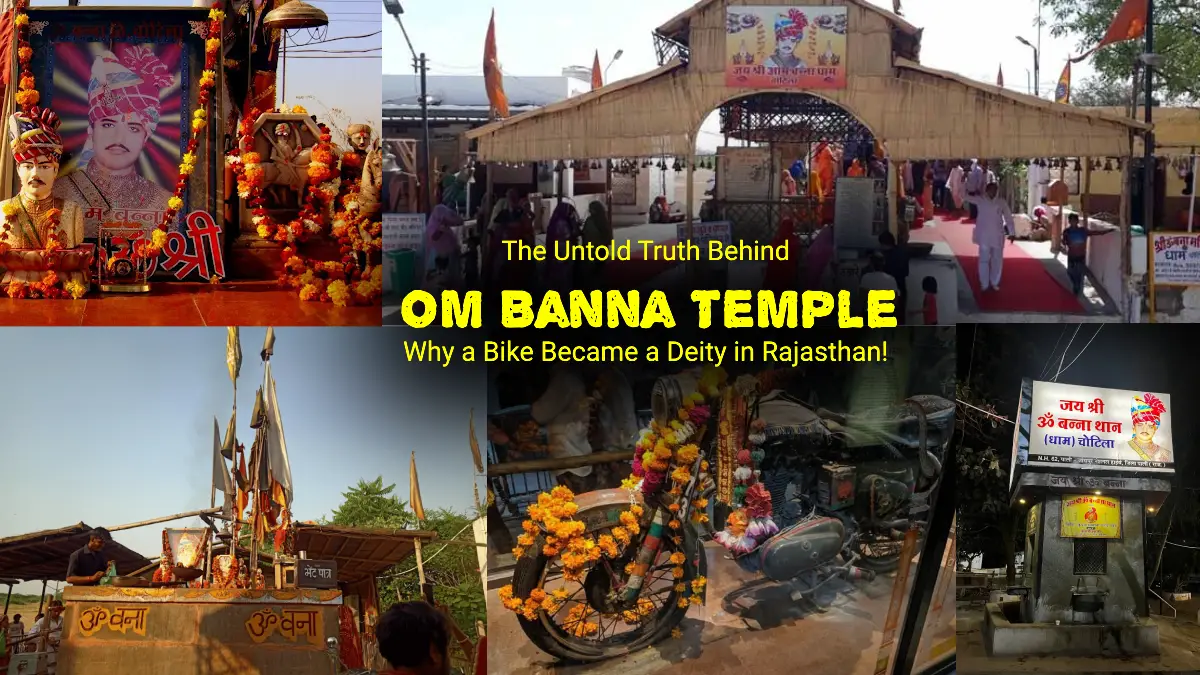
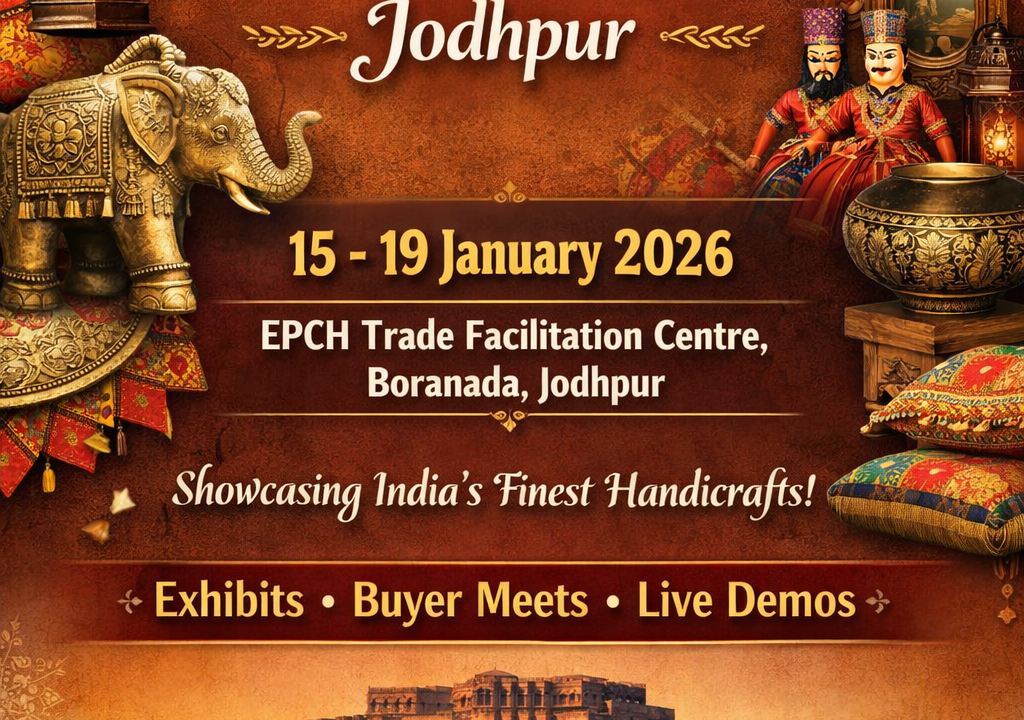
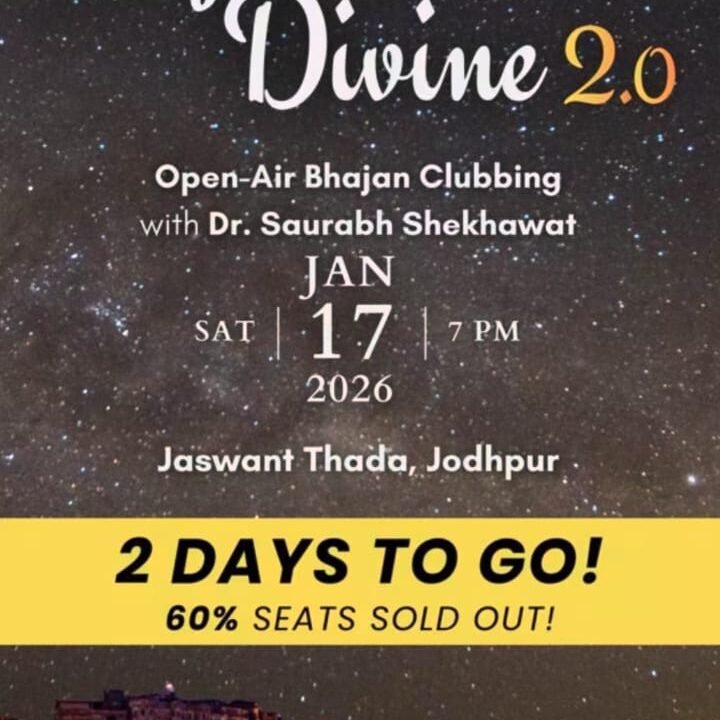
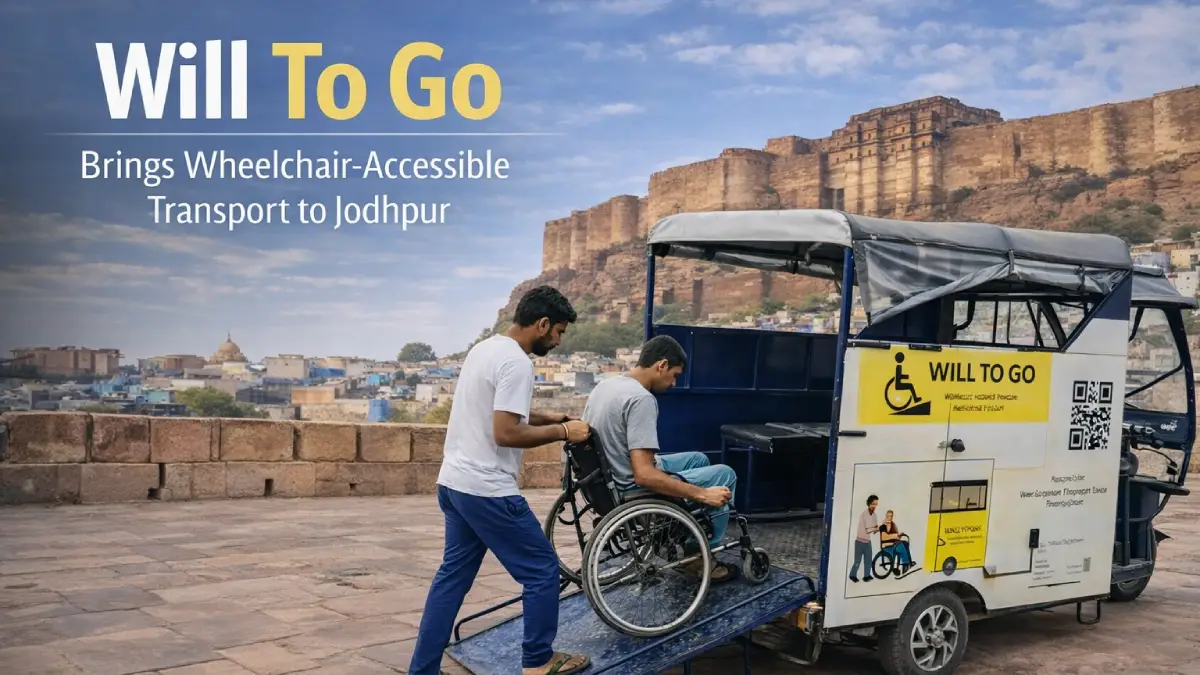
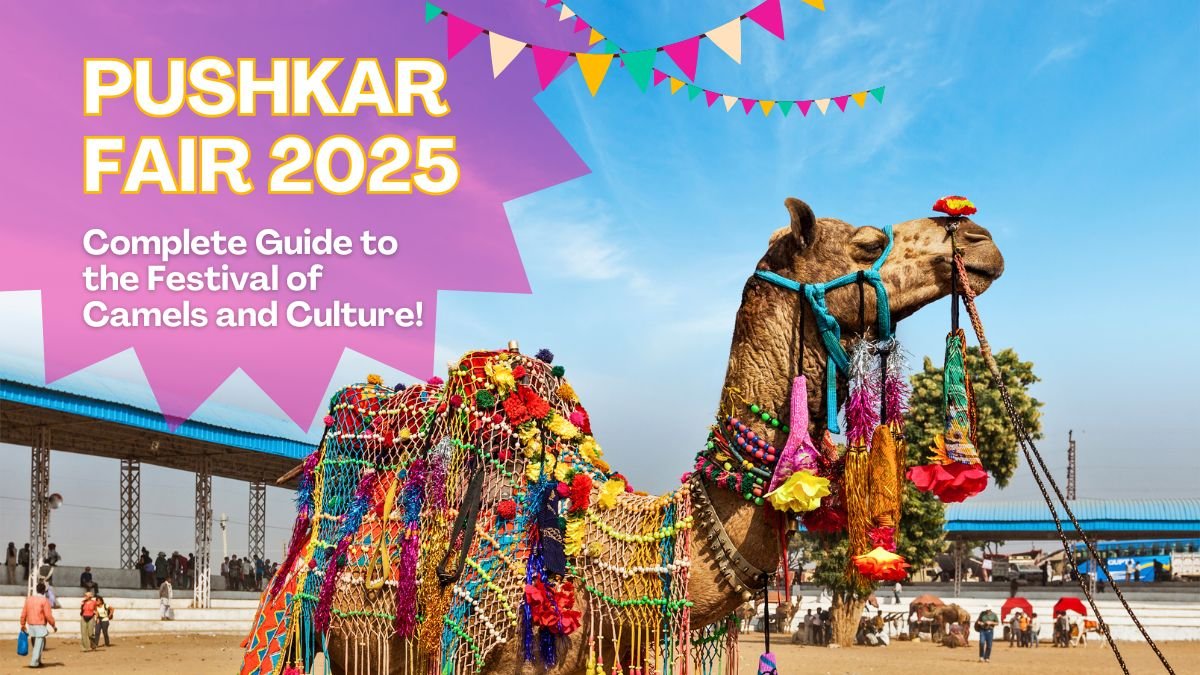
[…] in Marwari Culture: Celebrations That Define Marwar Pushkar Mela 2025: Complete Guide to India’s Most Colorful Camel Fair Meet the Artisans of Marwar: A Cultural Tour of Rajasthan’s Heritage Villages Massive Fire […]